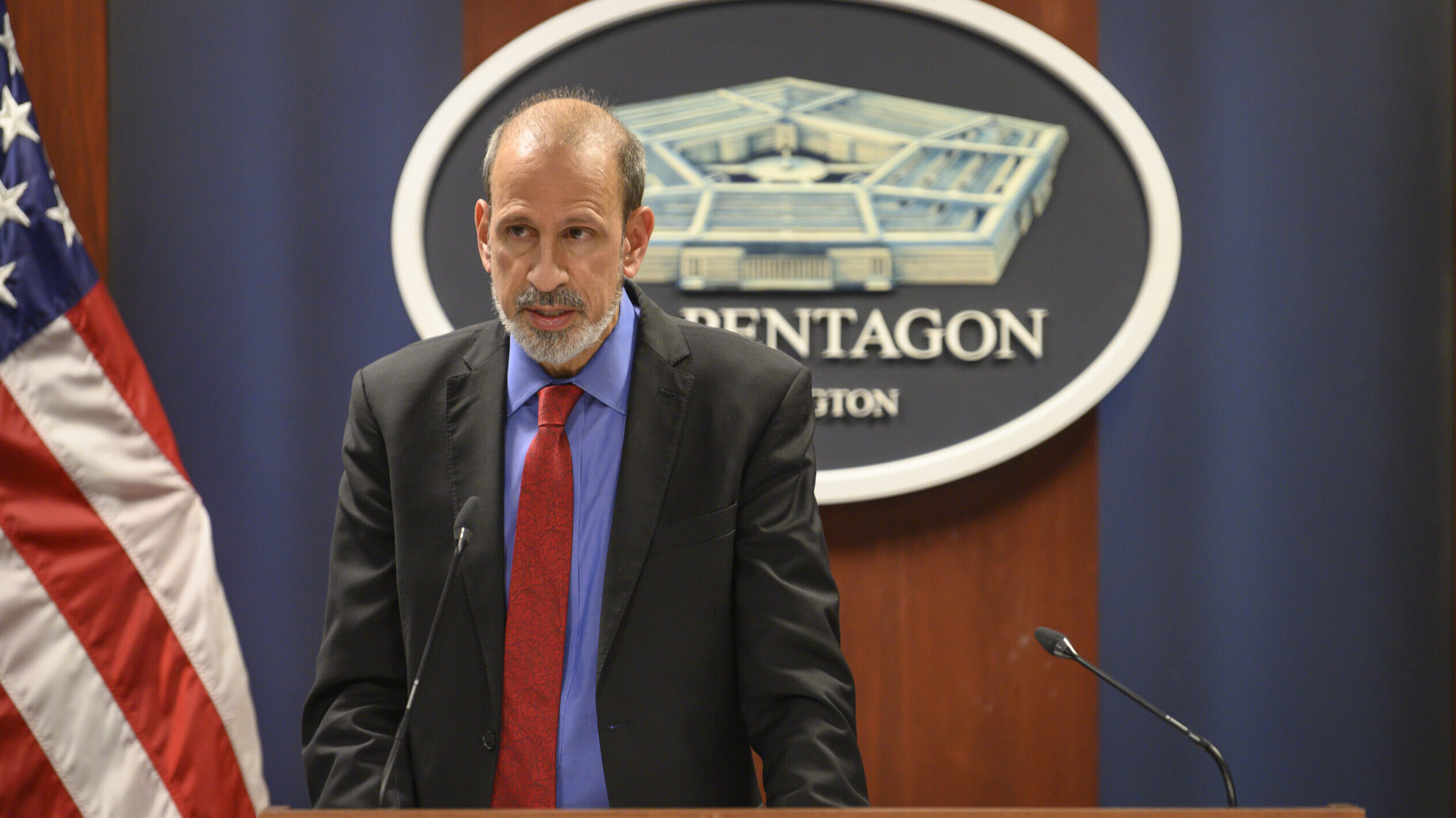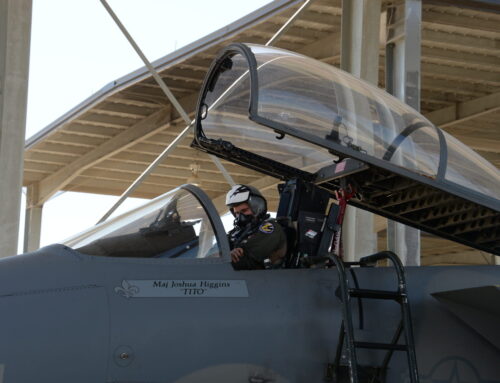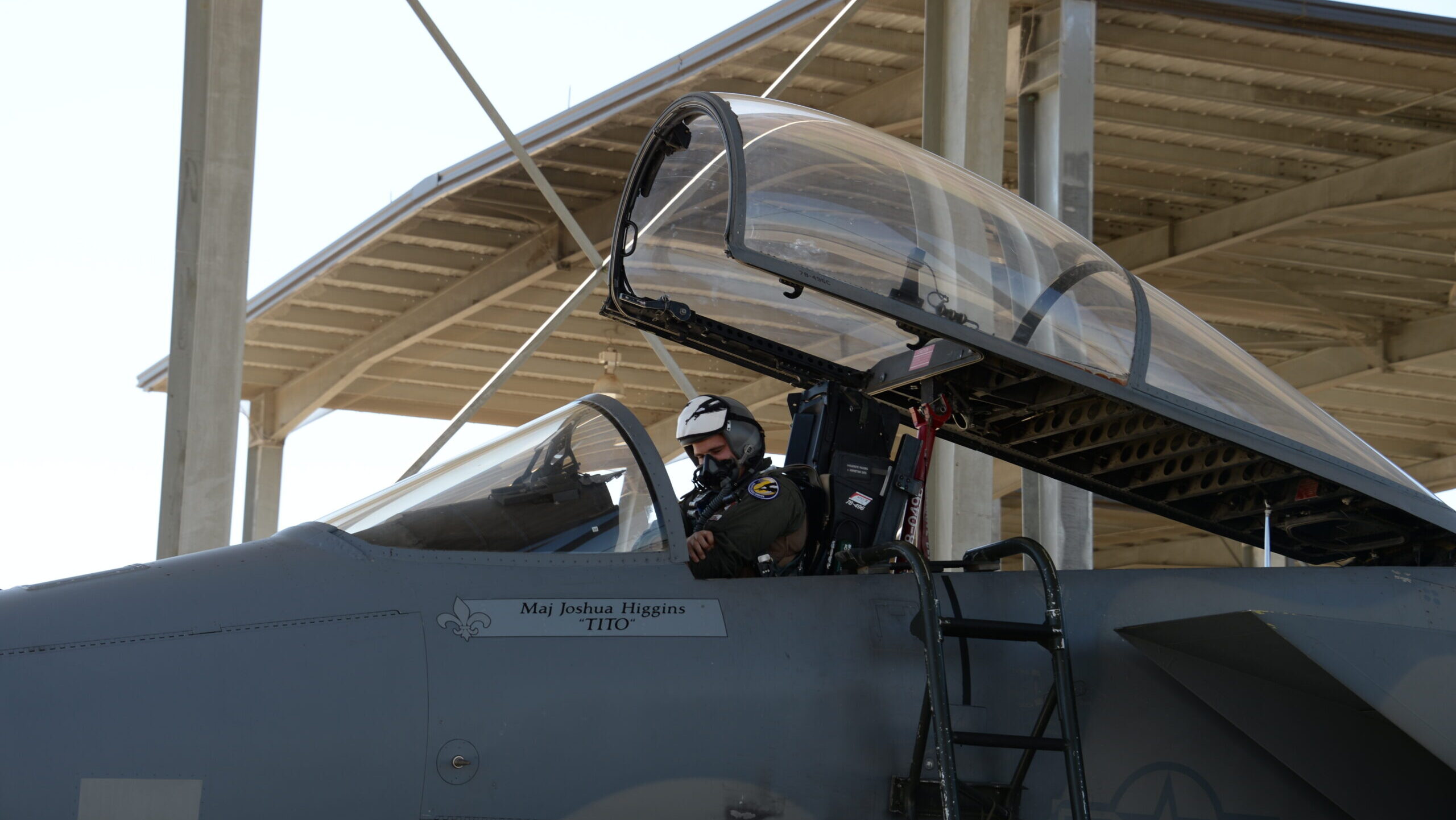Under Secretary of Defense Comptroller Mike McCord speaks during a press conference presenting the 2021 Department of Defense’s audit results, the Pentagon, Washington, DC, Nov. 15, 2021. (DoD/US Air Force Staff Sgt. Brittany A. Chase)
WASHINGTON — After the close of business Friday night, the Pentagon released the findings of its fiscal 2024 annual audit. And for the seventh consecutive year, it has failed, though claiming incremental improvements.
“This result was not a surprise, and I know that on the surface it doesn’t sound like we’re making progress. However, that is not the case,” Michael McCord, the Department of Defense Under Secretary of Defense and Chief Financial Officer, told reporters today. “I believe the department has turned a corner in its understanding of the challenges, and more importantly, in addressing those challenges, momentum is on our side.”
The annual audit is conducted by the DoD’s Office of Inspector General along with an independent public accounting firm that examined $4.1 trillion in assets and $4.3 trillion in liabilities.
This year’s report provides opinions on 28 entities ranging from the various services to the Military Retirement Fund — one fewer than last year since Special Operations Command was placed under the consolidated audit.
In total, nine entities have so far received an “unmodified audit opinion,” or clean audit, which is one more than last year. In essence, this means auditors determined that those offices’ financial statements were presented fairly and that they adhered to accounting principles.
One entity this year has received a “qualified opinion,” meaning auditors determined there were misstatements, or potentially undetected misstatements, but that those did not adversely influence the financial statements.
Three entities still have outstanding audits — the Marine Corps, Defense Logistics Agency’s National Defense Stockpile Transaction Fund, and the DoD Office of Inspector General — so it is readily clear where they will fall.
So far, though, the remaining 15 entities received a failing grade, or what are called “disclaimers” since auditors are not able to determine if the financial statements are accurate.
As a result of those findings, the department received a “disclaimer” opinion, essentially a failing grade.
“Momentum is on our side, and throughout the Department there is strong commitment — and belief in our ability — to achieve an unmodified audit opinion,” McCord said in a press release.
Pointing towards incremental improvements, McCord noted that eight DoD entities closed or “downgraded” their fund balance with treasury material weakness. That essentially means balancing that they succeeded in balancing their checkbook and were able to account for dollars. What remains a challenge, he added, is accounting for actual material items.
“We made more progress on the funding than we have on the property,” McCord told reporters.
What isn’t abundantly clear yet, is if the DoD will achieve a clean audit on all of its financial statements by the end of 2028 — a mandate included in the FY28 National Defense Authorization Act. At the rate it’s going, McCord said that will not be possible. However, if the incoming Trump administration is able to provide audit process continuity and keeps “getting faster and keep[s] getting better,” it may be obtainable.
“I would not fundamentally change strategy,” he told reporters.
“I would give some deference or lean in direction of keeping telling the team … doing what they’re doing and then adjust at the margins, rather than say we’re going to do a bureau-based review and everybody stop while we think about whether we’re doing this the right way,” McCord later added. “I would not recommend that course, myself.”
Earlier in the day, the DoD Inspector General released its FY25 Oversight Plan that revolves around six challenges: increasing military readiness; strengthening the capabilities and capacities of allies and partners; protecting defense critical infrastructure, building the future force; improving the quality of life for military families; and bolstering financial management.
On the financial side, the oversight office specifically noted concerns with “inadequate controls over financial data and accounting records,” outdated financial data management systems, and a shortage of skilled workers.
“These challenges require collaboration between the DoD’s financial management and operational leaders to implement the policies, processes, procedures, and systems needed to strengthen the DoD’s control environment and mitigate budget and personnel needs,” the DoD IG wrote.










